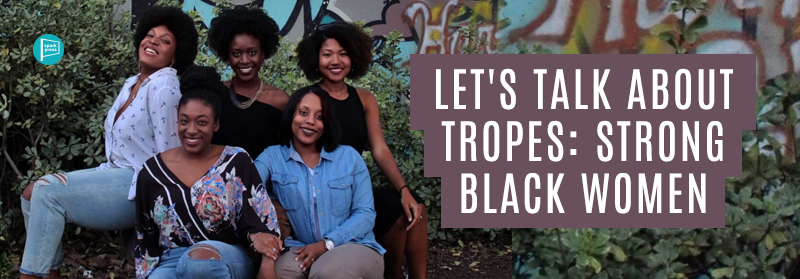
Strong Black Woman
“Caring for myself is not self-indulgence, it is self-preservation, and that is an act of political warfare.”
-Audre Lorde
What Is the Strong Black Woman Trope?
A Strong Black Woman literally embodies Superwoman. She shows emotional restraint, independence, takes care of everyone around her, has a strong moral compass, and holds people accountable. She has endured and overcome extreme hardships, so her adversity becomes a source of inner power. The Strong Black Woman trope is exemplified by Celie in The Color Purple. She lost two children to an abusive father and escaped her abusive husband Mister, eventually opening her own seamstress business.
According to Melissa Harris-Perry in her book Sister Citizen, the trope was modelled after women like Rosa Parks and Loretta Scott King from the 1950s/60s Black liberation period, contrasting previous popular tropes for Black women in literature.
One earlier popular trope is the Mammy, which originated from the character Mammy from Gone with the Wind. Mammy is the asexual grandmother who serves to console and counsel the main character. She justifies mistreatment by saying she enjoys serving white families.
On the other hand, we have the sexually insatiable Jezebel. Originating in the 70s, Jezebels are Black women depicted as animalistic in desire and sexually insatiable. This stereotype often justified sexual abuse towards Black women during and after slavery. In Ernest Hemingway’s work The Garden of Eden, the white female lead Catherine darkens her skin to increase her sexual power over her husband.
Another stereotype is called the Sapphire, or the Angry Black Woman. The Sapphire is characterized by being irrational, quick–tempered, and emasculating. The Sapphire stemmed from a fear of anger in Black women. In On the Come Up by Angie Thomas, the main character Bri is often dismissed by outsiders as angry and irrational—even if her anger is in reaction to an inappropriate interview question or when the security guards at school slam her to the ground because she didn’t want them to look through her backpack.
Strong Black Woman Stereotype: In Society
Some Black women see the reputation of the Strong Black Woman as an armor that helps them endure discrimination. However, the expectation of being Superwoman comes with “Superwoman Syndrome,” or suffering in silence.
As a result, Black women are statistically more prone to self-harm than white women (Scholars.org). Additionally, the stereotype of Black women being strong means that there are medical “studies” that believe Black women can tolerate more pain (Association of American Medical Colleges), which manifests in the almost 2.5x greater maternal mortality rate for Black women compared to white women (CDC).
Culturally the stereotype perpetuates the belief that since Black women can handle themselves, nothing needs to be fixed about race. People ignore Black women when they ask for help. This means that when Black women ask for help, they often are ignored. As a result, they have to pick up more work. Think of Stacey Abrams who organized voters in Georgia, and is largely credited as the primary force combatting voter suppression.
Expanding the Narrative for Black Women
Although many think it is a compliment to have many depictions of Strong Black Women, there are consequences for these colossal expectations. Instead of just having one type of Black woman speak for the rest, the film and literature industries need to support works that show more than one way to be a Black woman.
Purple Hibiscus by Chimamanda Ngozi Adichie does this well, showing Kambili Achike as a shy girl trying to find her voice, Beatrice Achike as the passive housewife who eventually poisons her husband, and Aunty Ifeoma as a single mom working as a lecturer at the University of Nigeria, Nsukka. All of these women have different personalities and values that makes them complex characters.
Hiring Black women can only fix this problem. Putting Black women in positions of power where they can decide what gets published helps ensure that high quality and diverse depictions of Black women becomes normalized in the mainstream, celebrating Black women for everything they can be.

Leave A Comment